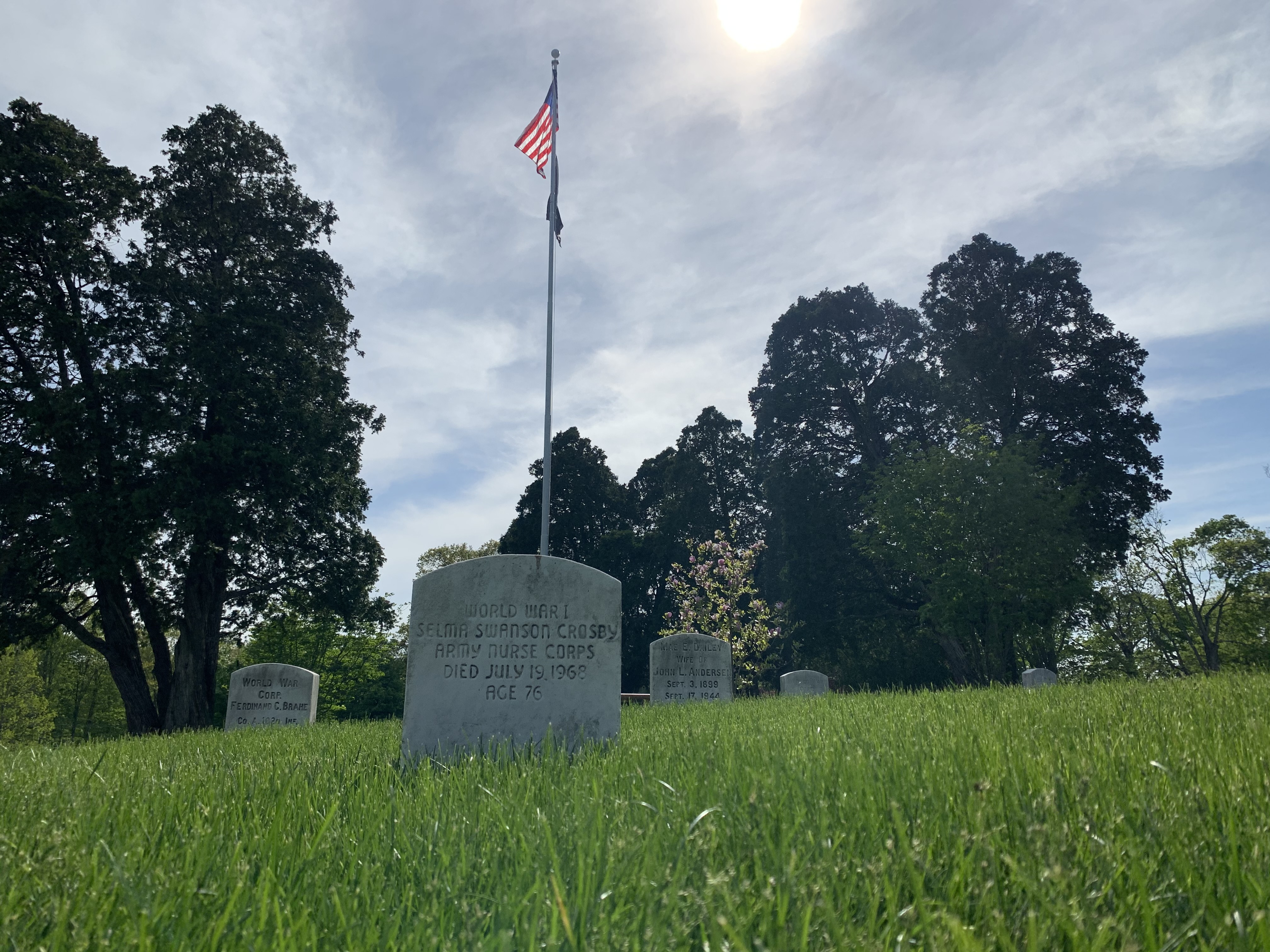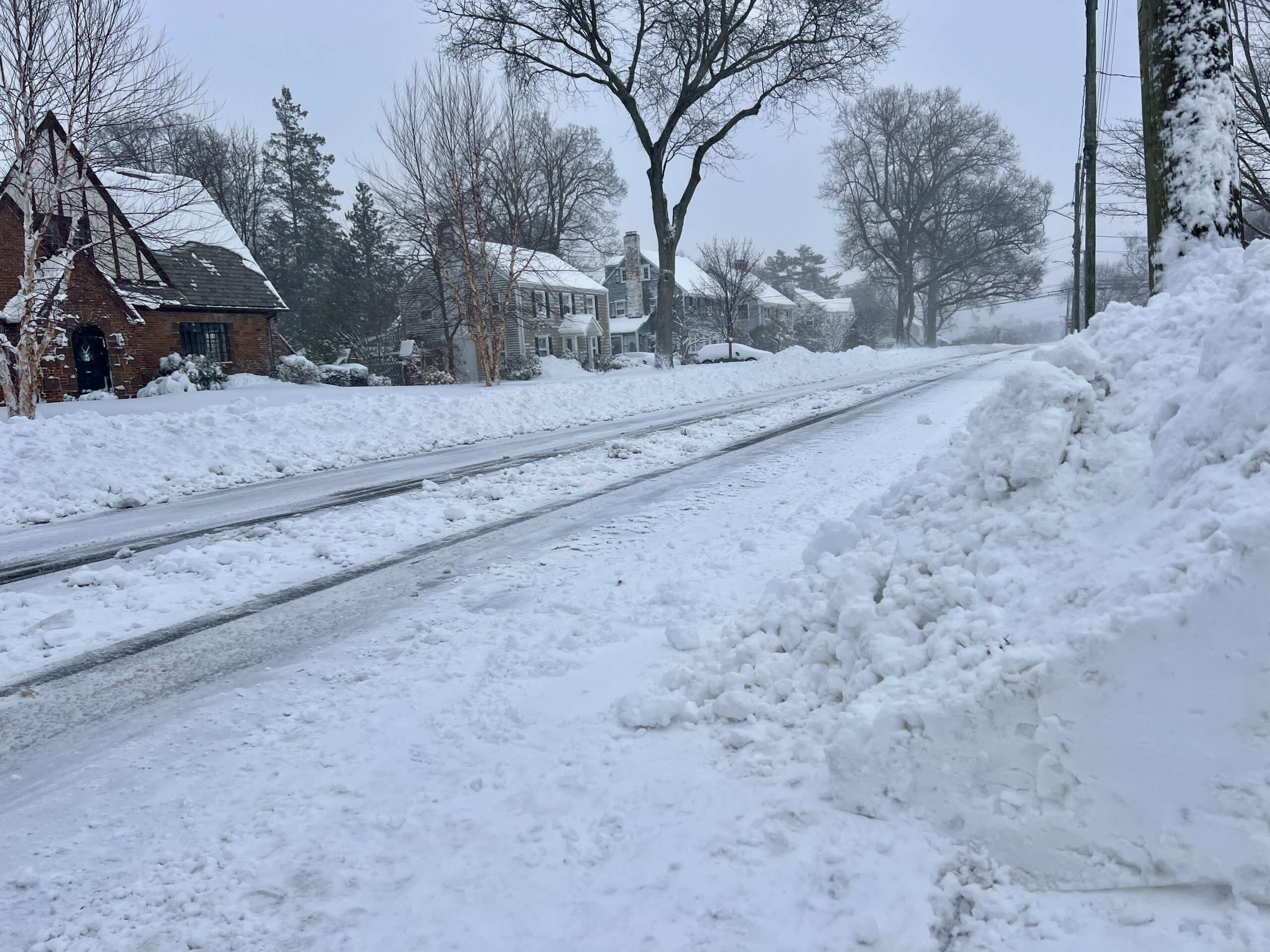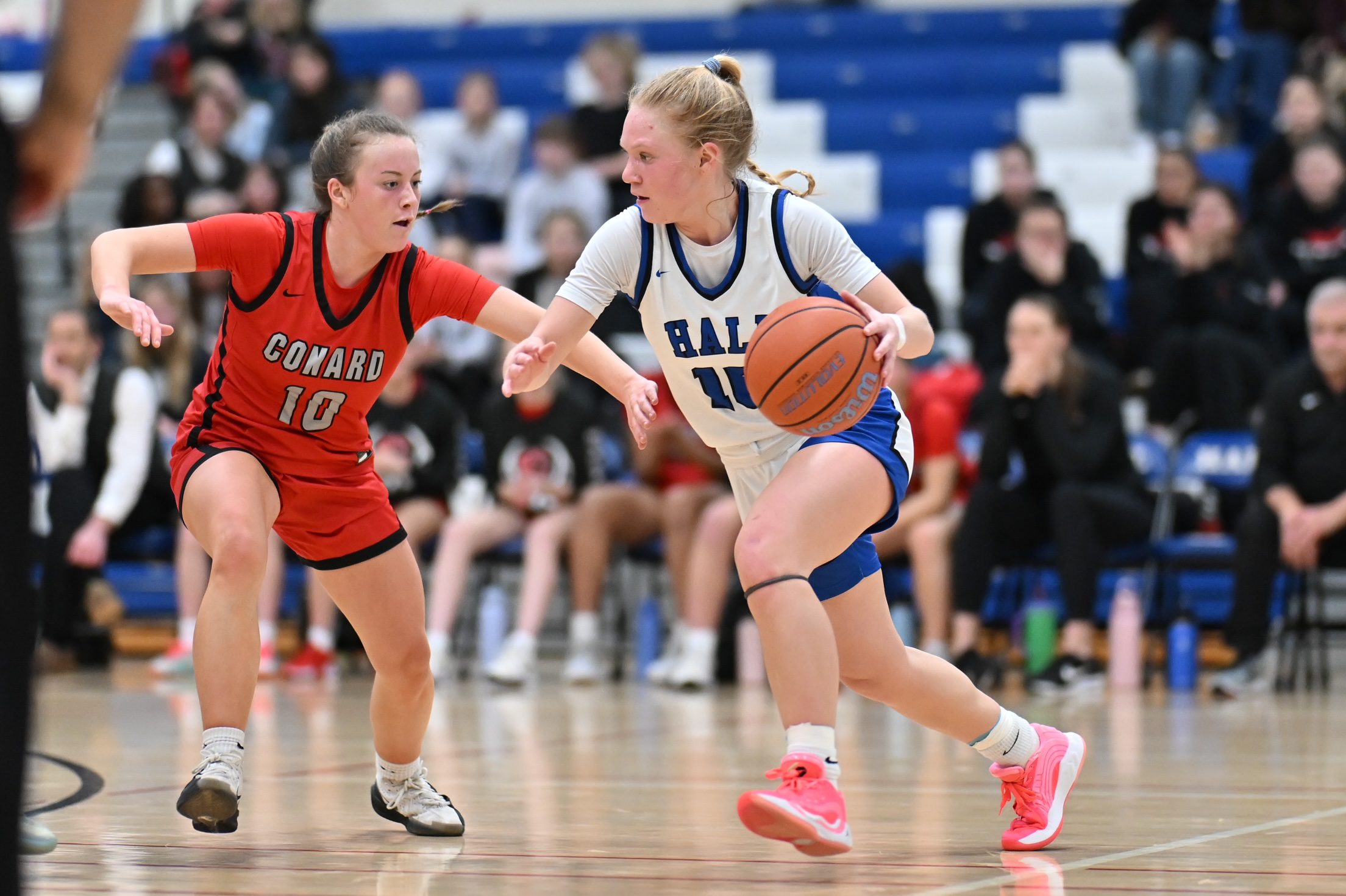Op-Ed: On this Memorial Day, Reflect on Heroism in Our Community

Audio By Carbonatix

Selma Swanson Crosby was laid to rest in West Hartford’s Fairview Cemetery in 1968. Photo Credit: Owen R. Eagan
Selma Swanson Crosby, whose body was buried in West Hartford’s Fairview Cemetery, was a nurse and member of the Army Nurse Corps during World War I, and is just one of many local heroes.
By Owen R. Eagan
What is a hero?
On this Memorial Day, I would invite you to reflect on that question.
Talk of heroes surfaces frequently in the ongoing conversation surrounding the response to the COVID-19 pandemic in which we find ourselves embroiled.
But what is a definition for the term?
In searching for one, we find that we have no shortage of heroism in our West Hartford history.
Take Ms. Selma Swanson Crosby as an example.
Born in 1891 in the city of Uppsala, Sweden, approximately 40 miles north of Stockholm, Crosby immigrated to the United States as a youth. She followed many waves of her fellow countrymen and countrywomen who came to America seeking new opportunities and fleeing from such hardships as widespread crop failures.
Crosby pursued an education as a nurse, graduating in 1913 from the Grace Hospital School of Nursing in Boston at about the age of 22. Upon her graduation, Crosby could not have expected that just a few years later she would be using her training to serve her adoptive country on a muddy battlefront in France as part of the U.S. Army Nurse Corps following the United States’ entry into World War I.
At the height of Army Nurse Corps enlistment in WWI, its ranks included over 21,000 nurses like Crosby. Close to half of these nurses served overseas, working at far-flung posts from France to Siberia and beyond and facing countless dangers in the line of duty. Beyond poison gas and bombardment-shrapnel that threatened nurses close to the front lines, explosive accidents, influenza, and pneumonia behind the lines claimed the lives of over 200 of these brave women.
Army nurses like Crosby served through the whole duration of WWI, moving fallen soldiers from harm’s way and serving on surgical teams and in hospitals both in the field and on army bases. Army nurses also tended to wounded soldiers on train and ship transports, saving countless lives.
After the war, Crosby returned to Connecticut where she raised a family and ran the Wa-qua-set Camp in Coventry for 26 years. Thus, even after her military service, it appears that her nurturing spirit continued to care for our nation’s youth.
From a woman not born in the United States, today we can learn about American heroism. We can learn to persevere over our own hardships and to use our skills to serve our communities and our country, helping others along the way.
So, what then is a hero?
A hero is someone who is admired for doing great or courageous acts or for their high measure of character.
We know them when we see them: they are the nurses like Selma Crosby, as well as the doctors, and other healthcare professionals giving care and comfort to those afflicted; the essential workers behind retail counters and in many other settings who keep our communities running while many of us stay home from work and school; the first responders of all kinds who keep our society safe and whole.
On this Memorial Day, when we honor the military heroes who helped secure and uphold the liberties that we enjoy in America today, I would invite you to reflect on heroism through the stories of people like Selma Swanson Crosby, and to ask yourself how you can honor their memory.
Perhaps you could contribute to the ideals for which they stood by reaching out to help your neighbors, your community, and your country.
You could check in on a neighbor or a grandparent. You could offer your help like the great students who are running the WeHa At Your Service initiative to assist people in need. You could wear your mask when you come into close proximity to others to help stop the spread of the virus to our most vulnerable community members. You could keep your distance (but give a wave as you do it) for the same reason.
You could donate to a charity like Soldiers’ Angels, which received a four-star rating from the Charity Navigator, and which is providing relief services to veterans and their families during this crisis.
Or perhaps you could contribute to the 4-CT charitable organization, an effort of Connecticut-based philanthropists that provides funding for projects serving our fellow citizens most in need—including by supporting nurses and first responders – or to the West Hartford Food Pantry, which is giving our food insecure neighbors the help they need to get through this challenging time.
When the world around us is bleeding as grim statistics show the rampaging path of the coronavirus taking lives like a battle of the Great War, I hope that you take the opportunity to do something heroic.
And the next time you pass by West Hartford’s Fairview Cemetery, perhaps you could stop by to visit Selma Crosby or one of our other veteran’s grave markers. She is buried in Section 5A, at a standing marker east of the central flagpole.
Owen R. Eagan is a West Hartford resident. He is currently a J.D. candidate at the Georgetown University Law Center. Portions of this article were drawn from research completed for the West Hartford Town Council to prepare notes for remarks given at the 2015 Memorial Day Flag Service at Fairview Cemetery.
We-Ha.com will accept Op-Ed submissions from members of the community. We reserve the right to edit all submitted content.
Like what you see here? Click here to subscribe to We-Ha’s newsletter so you’ll always be in the know about what’s happening in West Hartford! Click the blue button below to become a supporter of We-Ha.com and our efforts to continue producing quality journalism.



